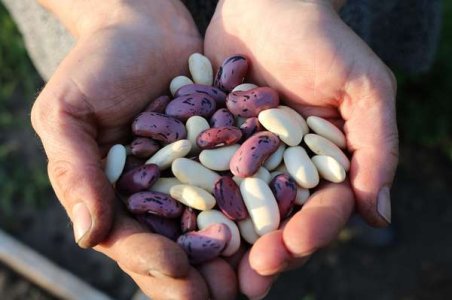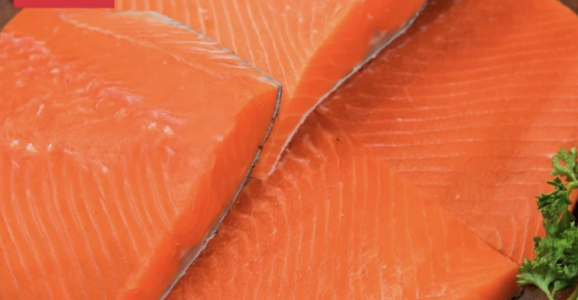Are beans the best for your health? Why nutritionists think you’re missing out.
- Replies 0
Disclaimer: The information provided in this article is for educational purposes only and is not intended as a substitute for professional medical advice, diagnosis, or treatment. Always consult your physician or other qualified healthcare providers with any questions you may have regarding a medical condition or before making any changes to your health regimen.
As we navigate the ever-evolving landscape of nutrition and health, it's easy to get caught up in the latest superfood trends.
But sometimes, the most powerful dietary staples are the ones that have been around for centuries. Enter beans and lentils – the unsung heroes of the pantry that are finally getting their moment in the nutritional spotlight.
If you're on a quest to enhance your well-being in 2025, incorporating more beans and lentils into your diet is a smart move.
These humble legumes are nutritional powerhouses, brimming with essential nutrients like fiber, protein, iron, and magnesium.
Despite their impressive profile, beans and lentils have often been bypassed in favor of more glamorous superfoods. But as we look to the future, it's clear that these versatile ingredients are set to take center stage.
The Scientific Report of the 2025 Dietary Guidelines Advisory Committee has recently shone a light on the importance of beans and lentils, noting that a staggering 83% of people don't meet the recommended intake of 1 to 4 cups per day.

With National Bean Day occurring last January 6, there's no better time to embrace these nutritional gems and reap their myriad health benefits.
Let's delve into the many advantages of making beans a staple in your diet:
Now, let's explore the top five bean varieties that nutritionists recommend, along with delicious ways to incorporate them into your meals:
Beans and lentils are not only affordable and versatile but also packed with nutrition that many of us are missing out on.
By incorporating these legumes into your diet, you're not just following a trend; you're making a timeless choice for your health.

Have you been underestimating the power of beans in your diet? Share your favorite bean recipes and tips in the comments below!
As we navigate the ever-evolving landscape of nutrition and health, it's easy to get caught up in the latest superfood trends.
But sometimes, the most powerful dietary staples are the ones that have been around for centuries. Enter beans and lentils – the unsung heroes of the pantry that are finally getting their moment in the nutritional spotlight.
If you're on a quest to enhance your well-being in 2025, incorporating more beans and lentils into your diet is a smart move.
These humble legumes are nutritional powerhouses, brimming with essential nutrients like fiber, protein, iron, and magnesium.
Despite their impressive profile, beans and lentils have often been bypassed in favor of more glamorous superfoods. But as we look to the future, it's clear that these versatile ingredients are set to take center stage.
The Scientific Report of the 2025 Dietary Guidelines Advisory Committee has recently shone a light on the importance of beans and lentils, noting that a staggering 83% of people don't meet the recommended intake of 1 to 4 cups per day.

Beans and lentils are nutritionally dense, offering protein, fiber, iron, magnesium, and other essential nutrients. Image source: Pexels / Pixabay.
With National Bean Day occurring last January 6, there's no better time to embrace these nutritional gems and reap their myriad health benefits.
Let's delve into the many advantages of making beans a staple in your diet:
- Heart health: Regular consumption of beans can help reduce LDL (bad) cholesterol levels, offering a protective effect against heart disease.
- Cancer prevention: Beans have been linked to a lower risk of colorectal cancer, thanks to their high fiber content.
- Blood sugar regulation: Despite their carbohydrate content, beans can aid in diabetes prevention and help maintain stable blood glucose levels.
- Weight management: Studies have found that people who eat beans regularly tend to have lower body weights and healthier waist-to-hip ratios.
- Improved diet quality: Bean eaters often have higher diet quality scores and consume more vital nutrients like fiber, iron, calcium, and potassium.
Now, let's explore the top five bean varieties that nutritionists recommend, along with delicious ways to incorporate them into your meals:
- Lentils
A half-cup serving of boiled lentils packs 8 grams of fiber and 9 grams of protein, along with a host of micronutrients. They're perfect in salads, soups, curries, veggie burgers, and as a meat substitute in sauces.
- Black beans
With 6 grams each of fiber and protein per half-cup, black beans are incredibly versatile. Use them in salads, taco bowls, baked goods, veggie burgers, or quesadillas.
- Cannellini Beans
These beans offer 5 grams of fiber, 6 grams of protein, and a significant iron content. They shine in soups, dips, and as a creamy hummus alternative.
- Chickpeas
A half-cup serving provides 6 grams of fiber and 7.5 grams of protein. Chickpeas are great in salads, sandwiches, hummus, or even roasted with a drizzle of chocolate.
- Edamame
High in protein with 11 grams per half-cup, edamame also provides fiber and essential vitamins and minerals. Enjoy them as a snack, in stir-fries, or atop rice bowls.
Beans and lentils are not only affordable and versatile but also packed with nutrition that many of us are missing out on.
By incorporating these legumes into your diet, you're not just following a trend; you're making a timeless choice for your health.
Key Takeaways
- Beans and lentils are nutritionally dense, offering protein, fiber, iron, magnesium, and other essential nutrients.
- Consumption of beans is associated with numerous health benefits, including heart health, colorectal cancer prevention, blood glucose control, weight management, and improved diet quality.
- Various types of beans, such as lentils, black beans, cannellini beans, chickpeas, and edamame, provide unique nutritional benefits and can be used in a range of culinary applications.
- When choosing beans, opt for dried, canned (preferably BPA-free), or frozen varieties without added sauces or salt, to maintain health benefits and minimise unnecessary additives.
Have you been underestimating the power of beans in your diet? Share your favorite bean recipes and tips in the comments below!






